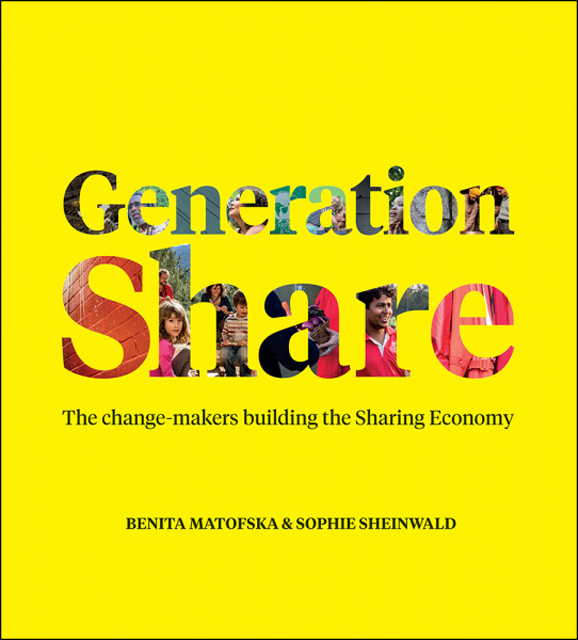Book contents
- Frontmatter
- Dedication
- Miscellaneous Frontmatter
- Contents
- Our Sponsor
- What Is The Sharing Economy?
- Does Age Matter?
- Sharing By Gender
- Sharing The City
- Sharing The Countryside
- Sharing The Money
- Is Sharing Cultural?
- Sharing And Disability
- The Geography Of Sharing
- Conclusion
- Notes
- Generation Share demonstrates the power of Sharing. The change-makers show just what’s possible – now it’s your turn. What can you share? How can you make a difference?
Does Age Matter?
Published online by Cambridge University Press: 14 October 2022
- Frontmatter
- Dedication
- Miscellaneous Frontmatter
- Contents
- Our Sponsor
- What Is The Sharing Economy?
- Does Age Matter?
- Sharing By Gender
- Sharing The City
- Sharing The Countryside
- Sharing The Money
- Is Sharing Cultural?
- Sharing And Disability
- The Geography Of Sharing
- Conclusion
- Notes
- Generation Share demonstrates the power of Sharing. The change-makers show just what’s possible – now it’s your turn. What can you share? How can you make a difference?
Summary
In the beginning, the people creating the Sharing Economy and driving it (some quite literally) were millennials, most aged 25–34, middle class, educated, looking for experiences, adventure and a desire to belong. I called them ‘Generation Share’, a global peer group, connected via technology, united by sharing resources and driven by possibility.
Research showed that of the world’s 2.68 billion millennials, 73% saw the Sharing Economy as important to them,7 preferring to access rather than own goods. With most Sharers having a degree or other qualifications and earning over $100,0008 a year, the Sharing Economy, it seemed, was a young thing, an educated thing and, most certainly, a middle-class thing.
Fast forward to 2019 and ‘Generation Share’ has grown well beyond its early, hip, millennial adopters. Now over 28% of the global adult population are participating,9 with 25% of Sharing Economy service providers being over 55.10 Participation rates of over 55s on some sharing sites has grown over 375% in the past year11 and adults aged 55–64 choosing renting, sharing and swapping over ownership has increased 80% in the past 12 years. Millennials may still form the largest group of Sharers, but the Sharing Economy has certainly spread outside of its earlier demographic leanings.
So is there a link between age and sharing? Does why, what and how we share vary as we age? When it comes to Sharing, does age matter?
Generation Y (Millennials)
Millennials think they can change the world, but they know they can’t do this alone. They are connected from birth. They have the tools, mindset and passion to use technology for social good.
Inés Echevarria, crowdfunder, Barcelona
They’ve been vilified and judged, they’re the largest peer group in the US and India, and they’ve garnered more attention than any other generation. But go beyond the stereotypes and the tabloid headlines and you’ll find that the global cohort first coined ‘millennials’ by William Strauss and Neil Howe,12 (born between 1982 and 2004), brought us the ‘Sharing Economy’ in the first place. Millennials are natural born Sharers: they see that the road to consumption is paved with destruction; they recognise that the accumulation of stuff doesn’t make us happier or healthier but brings heartache, for people and planet.
- Type
- Chapter
- Information
- Generation ShareThe Change-Makers Building the Sharing Economy, pp. 25 - 88Publisher: Bristol University PressFirst published in: 2022



